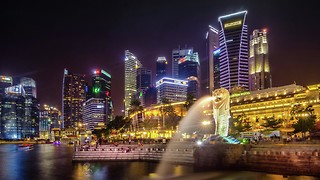Theatre: Madame Bovary: Breakfast with Emma
Heather Williams finds an all-female Madame Bovary adaptation un peu underwhelming

In the director’s notes to this adaptation of Flaubert's great novel of adultery and boredom, Nailya Shamgunova talks about her desire to stress the universality of ‘relationship problems’ vs. social imprisonment as the motivating force of the play. These problems aren’t really expressed at all. The turbulent relationship between Emma Bovary and her husband Charles, played by Andrea Tudose and Rebecca Hare, comes across pretty flatly. It’s often difficult to believe that they are fighting at all. Andrea Tudose is at her best when she was alone, speaking weird little flighty monologues to the audience, and pirouetting around the stage: her interaction with other characters settled on this uncomfortable level of non-intensity and tedium. The first half of the play was a little awkward, and was only partially redeemed towards the end. There were some (sadly brief) moments of strong performance, but most of the time everything was just a little too half-hearted.
This is probably the time to mention that it's an all-female cast, which sort-of works but is also a little gimmicky and frequently weak. In part, this is what reduces the dynamism between cheating wife and stolid husband – if it was just the two of them, it might be fine – but the fact that every other significant male Emma encounters is played by a third actress, Octavia Sheepshanks, pushes everything just a little bit too close to farce/caricature. It doesn’t help that Fay Weldon’s script is full of lines like ‘I’m a man!’ – funny once, less funny for the fourth time.
But, through this casting choice, Shamgunova actually achieves a much more interesting comment on social expectation and restraint, on her protagonist’s imprisonment within these supposedly masculine networks. When Charles, Leon, or Rodolphe run through their catalogues of gender superiority in their lilting, feminine voices, the entire performance acquires a meta-feminist twist of girls putting down girls. I was made to feel very aware of the actors as actors, as inhabiting these socially constructed roles and parroting an ideology (though dated) very much at odds with their own bodies, and creating a total absence of female sympathy.
So that was nice. The staging was simple, and flashbacks to moments of social glory were done beautifully through some really subtle lighting. But there was also an awkward soundtrack of sex noises that didn’t really need to be there. The production had its good moments, but mostly just provided a nice platform from which to extrapolate stray thoughts about the condition of being a girl in a male-dominated world. Shamgunova says she’ll leave the feminist themes for the audience to decide/pin down – I mostly just zoned out to a mental backdrop of Lana del Rey’s ‘This Is What Makes Us Girls’ – but perhaps you’ll derive more.
Madame Bovary is playing until Saturday at the Pembroke New Cellars, 9.30pm
 News / Students form new left-wing society in criticism of CULC3 September 2025
News / Students form new left-wing society in criticism of CULC3 September 2025 News / Tompkins Table 2025: Trinity widens gap on Christ’s19 August 2025
News / Tompkins Table 2025: Trinity widens gap on Christ’s19 August 2025 News / Cambridge’s tallest building restored to former glory1 September 2025
News / Cambridge’s tallest building restored to former glory1 September 2025 News / Student house could become homeless shelter2 September 2025
News / Student house could become homeless shelter2 September 2025 Comment / The reality of the Tompkins Table rankings3 September 2025
Comment / The reality of the Tompkins Table rankings3 September 2025








